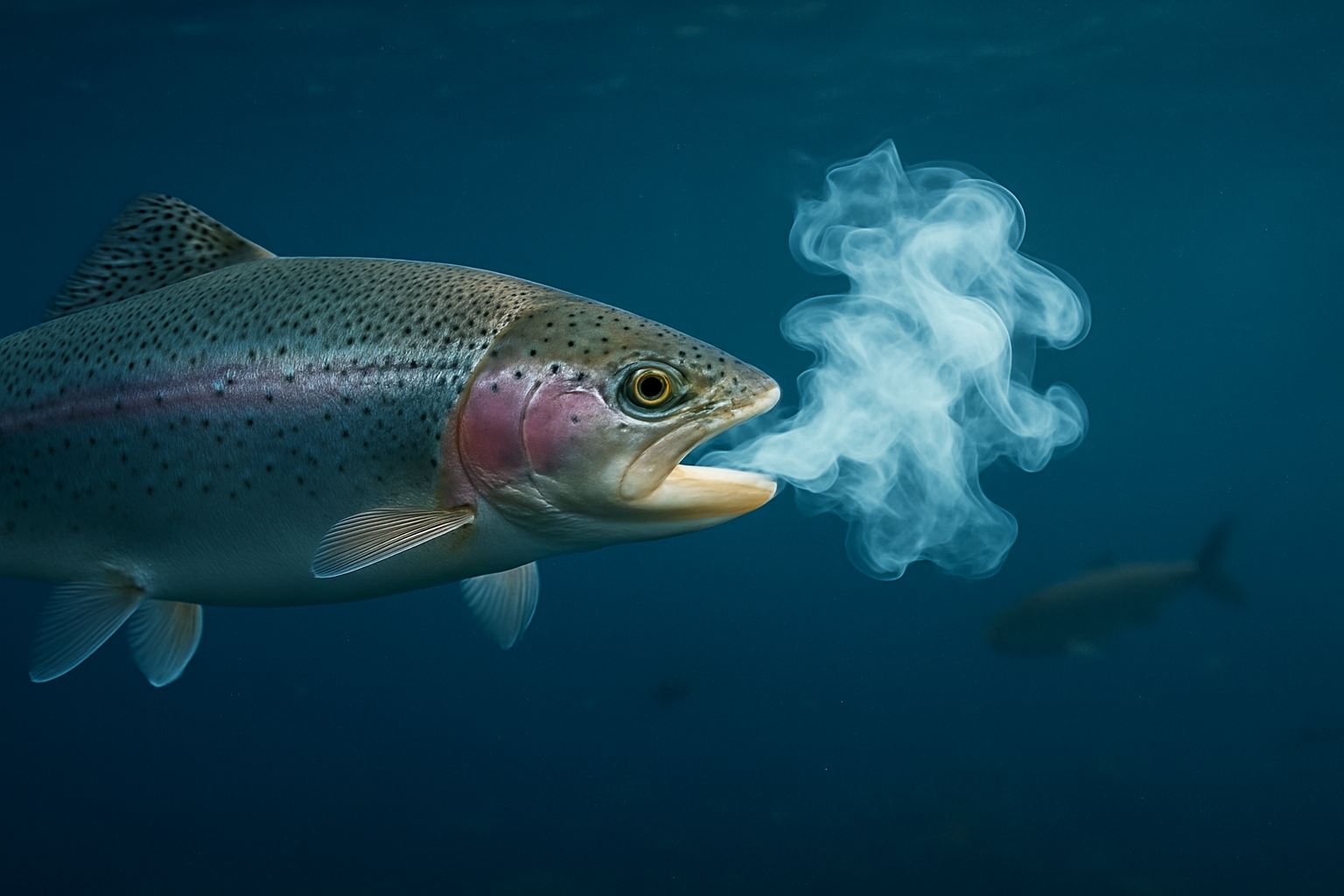Aquatic Aromatherapy: The Scented World of Fish
In the vast realm of aquatic wonders, a fascinating yet often overlooked aspect of fish biology is coming to light: their remarkable sense of smell. This olfactory prowess plays a crucial role in their daily lives, from finding food to navigating treacherous waters. Let's dive into the aromatic universe of our finned friends and explore how their noses shape their underwater existence.

The Anatomy of Fish Olfaction
Fish olfactory organs are surprisingly sophisticated. Unlike humans, who have a single pair of nostrils, most fish species possess two pairs of nares (nasal openings) on the front of their head. Water flows into one opening, passes over a series of folded tissues called lamellae, and exits through the other opening. These lamellae are packed with sensory cells that detect dissolved chemicals in the water.
The olfactory bulb, a part of the fish’s brain dedicated to processing scent information, is often larger in proportion to body size than in many other vertebrates. This enhanced neural capacity allows fish to detect and differentiate between a vast array of chemical compounds, even in incredibly dilute concentrations.
Chemical Communication Among Fish
Fish use their sense of smell for a variety of social interactions. Many species release pheromones to attract mates, mark territory, or signal danger to their schoolmates. These chemical messages can travel great distances in water, allowing fish to communicate over vast areas of their habitat.
For example, salmon use their incredible sense of smell to navigate back to their natal streams for spawning. They can detect the unique chemical signature of their home waters even after years spent in the open ocean, a feat that continues to astound scientists.
Scent-Based Hunting and Foraging
The olfactory abilities of fish play a crucial role in their feeding behaviors. Predatory fish can detect the scent of prey from considerable distances, allowing them to locate food sources efficiently. Some species, like catfish, have taste buds distributed across their entire body, enhancing their ability to sense chemicals in the water and locate food.
Interestingly, certain fish species have evolved to use scent as a defensive mechanism. The skunk loach, for instance, releases a pungent odor when threatened, deterring potential predators much like its terrestrial namesake.
Environmental Implications and Conservation
Understanding the olfactory world of fish has significant implications for conservation efforts. As human activities continue to alter aquatic ecosystems, the chemical landscape of these environments is changing. Pollutants, agricultural runoff, and even subtle shifts in water chemistry can disrupt the delicate balance of scents that fish rely on for survival.
Researchers are now exploring how these changes affect fish populations. For instance, studies have shown that ocean acidification can impair the ability of some fish species to detect predators through scent, potentially leading to increased vulnerability and population declines.
Future Research and Applications
The study of fish olfaction is a rapidly evolving field with exciting potential applications. Scientists are exploring the possibility of using artificial scents to guide endangered fish species away from hazardous areas or towards more suitable habitats. This could prove invaluable in conservation efforts for species threatened by habitat loss or degradation.
Additionally, understanding how fish perceive and respond to scents could lead to innovations in sustainable aquaculture practices. By manipulating the olfactory environment, farmers might be able to improve feeding behaviors, reduce stress, and enhance overall fish health in captive populations.
As we continue to unravel the mysteries of the aquatic world, the importance of smell in the lives of fish becomes increasingly apparent. This hidden sensory landscape offers a new perspective on underwater ecosystems and highlights the intricate ways in which all living beings are connected to their environment. The aromatic realm of fish serves as a reminder of the complex and often unseen factors that shape the natural world around us.





